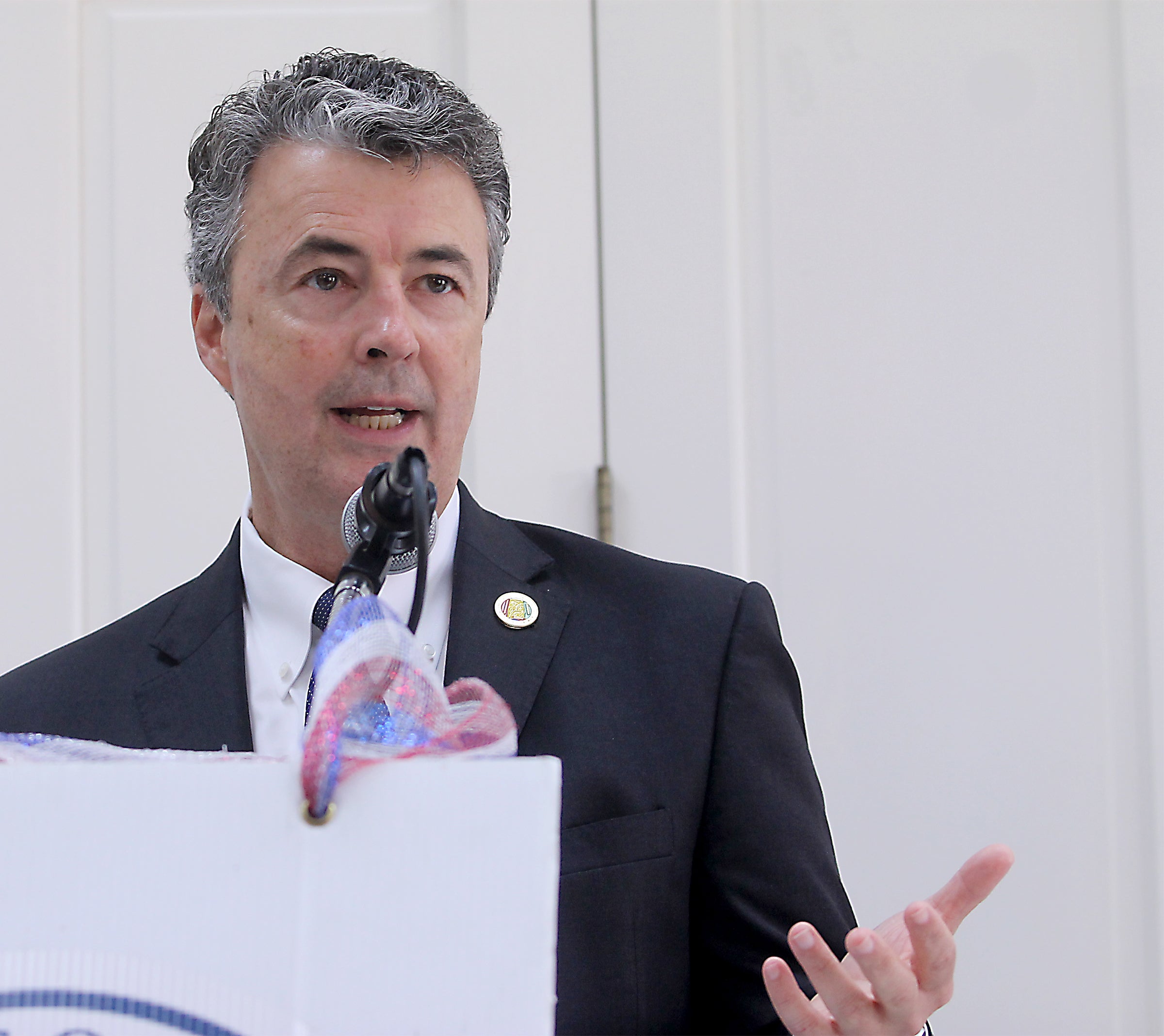Marshall discusses reality of human trafficking
Published 9:12 pm Wednesday, April 28, 2021

- Huck Treadwell | The Messenger Alabama Attorney General Steve Marshall spoke to the Pike County Republican Women about human trafficking in Alabama. Marshall said prosecuting human trafficking crimes is one of his top priorities.
|
Getting your Trinity Audio player ready...
|
Alabama Attorney General Steve Marshall spoke to the Pike County Republican Women about why he considers human trafficking to be one of his top priorities.
Marshall was the Marshall County district attorney before being appointed as attorney general by former Gov Robert Bentley. While the Marshall County DA, Marshall prosecuted the case of David Barrow. Barrow was a soccer coach and well liked and respected in the Guntersville community. But, Marshall said people would soon learn he had a darker side.
“He would travel to Huntsville and find drug addicts, women with children, and further their addiction,” Marshall said. “He would convince the mothers bring their children to a motel. He was paying mothers to provide daughters for his heinous acts.”
Barrow was arrested in May 2014 in Huntsville after his team has competed in the state soccer tournament.
Marshall went on to say that people in the community didn’t believe the charges against Barrow. He said many people had signs in their yards that read “David didn’t do it.”
Marshall said people changed their mind when they learned Barrow had hidden cameras in the locker room of Guntersville High School’s girls soccer team.
His original indictment included 25 counts of producing child pornography, one count of possession of child pornography and one count of aggravated criminal surveillance.
Barrow was convicted and sentenced to 30 years on human trafficking charges.
“Human trafficking happens in many situations,” Marshall said. “The perpetrators can be people you know and wouldn’t suspect and it can happen in places where you think it wouldn’t happen.”
Marshall said human trafficking involves perpetrators using force, fraud or coercion to obtain some type of labor or commercial sex act. Marshall said human trafficking enslaves both men and women in the sex trade and labor market. Marshall said the problem was worldwide and not just limited to the United States or Alabama.
“Alabama was slow to recognize what was going on,” Marshall said. “In 2010, we had no human trafficking laws. At one time, we were given an ‘F’ for our human trafficking laws. We’ve given our law enforcement officers the tools they need to effectively prosecute perpetrators. We’ve gone from an ‘F’ to an ‘A.’”
Marshall said there had been 69 people prosecuted for human trafficking in the last 18 months. He said human trafficking typically occurs around interstates because the traffickers move the victims from place to place. He said the state had created unique partnerships to combat human trafficking — such as a partnership with the Alabama Trucking Association and Truckers Against Trafficking.
To learn more about human trafficking, visit the Department of Homeland Security’s Blue Campaign, dhs.gov/blue-campaign, or the National Center for Missing and Exploited Children, missingkids.com.
To report suspected human trafficking, call Homeland Security Investigations at 1-802-872-6199. To get help form the National Human Trafficking Resource Center, call 1-888-373-7888.





